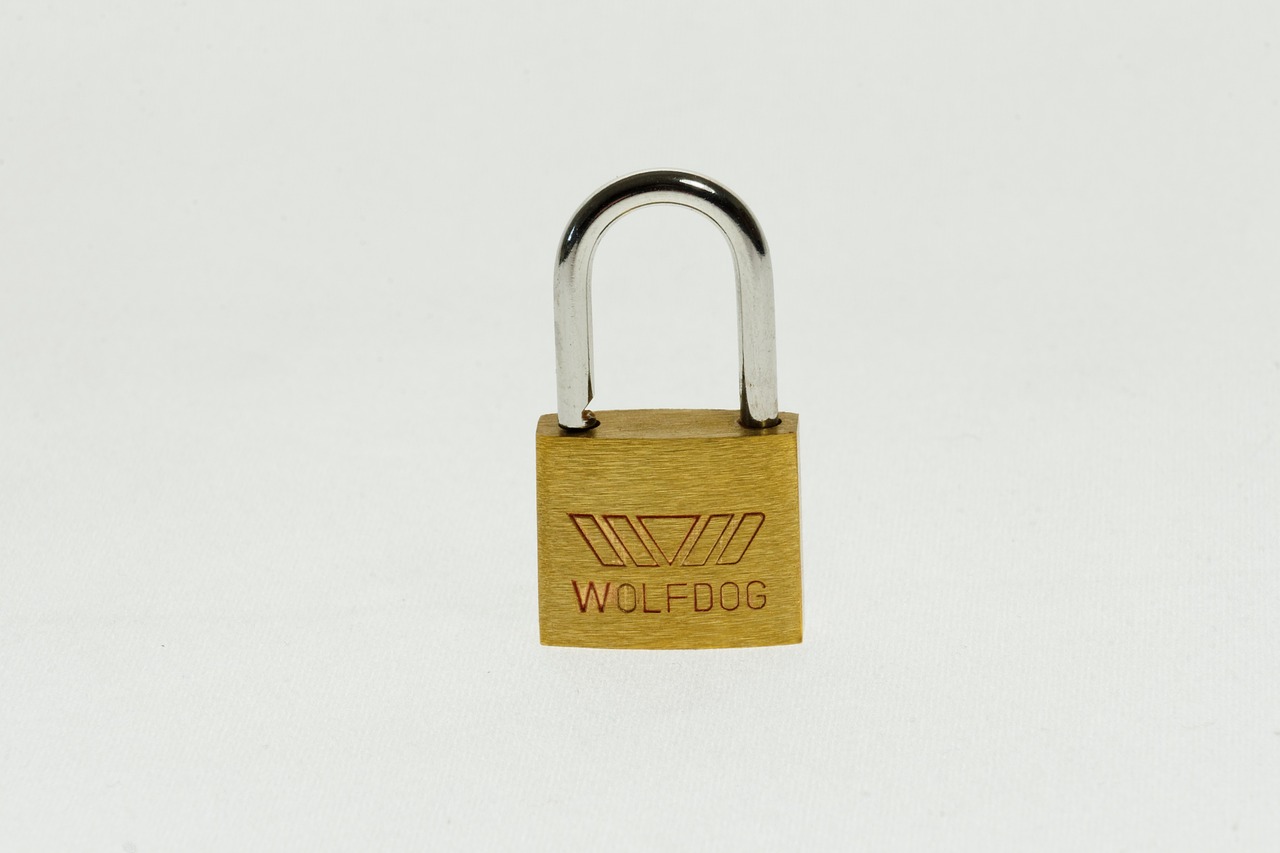Catfishing and Online Identity Theft
In today's digital age, where our lives are increasingly intertwined with the online world, the terms catfishing and online identity theft have become buzzwords that evoke both intrigue and concern. But what do these terms really mean, and why should we care? Catfishing refers to the practice of creating a false online persona with the intent to deceive others, often for emotional or financial gain. Imagine someone crafting an entire life story, complete with fake photos and elaborate details, all to lure unsuspecting victims into their web of lies. On the other hand, online identity theft involves stealing someone's personal information—like their name, social security number, or financial details—to impersonate them, often leading to devastating consequences. The implications of these deceptive practices stretch far beyond individual experiences, affecting our society as a whole. So, let’s dive deeper into the murky waters of catfishing and identity theft, exploring their motivations, consequences, and how we can protect ourselves.
At its core, catfishing is a complex psychological game. Perpetrators may have various motivations for their actions, ranging from loneliness and a desire for companionship to more sinister goals like financial exploitation. The emotional toll on victims can be profound, leading to feelings of betrayal, embarrassment, and even depression. It's a classic case of trust being broken—a betrayal that can leave lasting scars. Interestingly, the catfisher themselves may also experience psychological implications. They might grapple with feelings of guilt or shame, yet continue their deceptive behavior, caught in a cycle of lies. Understanding these dynamics is crucial, as it sheds light on the human elements driving both the deception and the victimization.
Online identity theft is a pervasive issue that can happen to anyone. Criminals employ a variety of methods to steal personal information, ranging from phishing emails that trick individuals into providing sensitive data to hacking into databases of companies that store such information. The consequences for victims can be dire, leading to financial loss, damaged credit scores, and a long, arduous process of reclaiming their identity. In fact, the Federal Trade Commission reports that millions of Americans fall victim to identity theft each year. The emotional aftermath can be just as devastating, leaving victims feeling vulnerable and anxious. It’s a harsh reality that underscores the importance of being vigilant about our personal information.
Catfishers are often master manipulators, employing a range of techniques to create their believable personas. They frequently use stolen photos from social media or other online sources, crafting a visually appealing profile that draws in potential victims. Alongside this, they develop elaborate backstories that resonate emotionally, making it easier for their targets to connect. The manipulation of emotions is a key tactic; catfishers often exploit the vulnerabilities of others, using sympathy and flattery to build trust. This can lead to a dangerous situation where victims become emotionally invested, making it even harder for them to see through the deception.
Social media platforms serve as fertile ground for catfishing. With millions of users sharing personal details, photos, and stories, it becomes all too easy for someone to create a false identity. The anonymity of the internet allows catfishers to operate without fear of immediate repercussions. However, it also places a responsibility on users to protect themselves and their information. By being cautious about what we share and who we engage with, we can mitigate the risk of falling victim to such deceptive practices. Remember, if something seems too good to be true, it probably is!
Identifying catfishing can be challenging, but there are common warning signs to be aware of. Here are a few red flags that might indicate someone is not who they claim to be:
- Inconsistent stories or details that don’t add up
- Reluctance to meet in person or video chat
- Requests for money or sensitive information
- Profile pictures that look overly professional or too good to be true
By staying alert and recognizing these signs, individuals can better protect themselves from falling prey to catfishers.
The consequences of identity theft are not just financial; they can be deeply emotional as well. Victims often experience a range of feelings, from stress and anxiety to a profound sense of violation. The immediate aftermath can involve dealing with fraudulent charges, disputing transactions, and repairing credit scores, which can take months or even years. Long-term effects may include a loss of trust in others, difficulty in securing loans or credit, and a lingering fear of being victimized again. It's a reality that can leave individuals feeling powerless, highlighting the importance of awareness and prevention.
Engaging in catfishing and identity theft can lead to serious legal repercussions. Many jurisdictions have laws that specifically address these offenses, often classifying them as felonies. Penalties can include hefty fines and even prison time, depending on the severity of the crime and the harm caused to victims. Understanding the legal landscape is crucial for both potential perpetrators and victims, as it underscores the seriousness of these actions.
If you find yourself a victim of catfishing, it’s essential to take action. Reporting incidents to authorities and social media platforms can help prevent further victimization. Start by gathering all relevant information, such as screenshots of conversations and profiles. Then, report the incident to the platform where the catfishing occurred, as well as local law enforcement. Empowering yourself by taking these steps is vital in regaining control over your situation.
Preventing identity theft requires proactive measures. Here are some effective strategies to safeguard your personal information:
- Use strong, unique passwords for different accounts
- Enable two-factor authentication wherever possible
- Be cautious about sharing personal information on social media
- Regularly monitor your financial statements for suspicious activity
By implementing these strategies, individuals can significantly reduce their risk of becoming victims of online deception.
Q: What should I do if I suspect I am being catfished?
A: If you suspect you are being catfished, cease communication with the individual immediately. Gather evidence, such as screenshots of conversations, and report the profile to the relevant platform. You may also want to inform local authorities.
Q: How can I protect myself from identity theft?
A: Protect yourself by using strong passwords, enabling two-factor authentication, and being cautious about sharing personal information online. Regularly monitor your financial accounts for any unauthorized transactions.
Q: Are there legal ramifications for catfishing?
A: Yes, catfishing can lead to serious legal consequences, including fines and imprisonment, depending on the severity of the offense and the laws in your jurisdiction.

Understanding Catfishing
Catfishing is more than just a buzzword in today's digital landscape; it’s a deceptive practice that can leave emotional scars and financial devastation in its wake. Imagine you’re scrolling through your social media feed and you come across a profile that seems too good to be true. The person behind the screen appears charming, successful, and genuinely interested in you. However, as the story unfolds, you realize that the person you’ve been connecting with is nothing but a figment of someone’s imagination, crafted meticulously to lure you in. This is the essence of catfishing.
At its core, catfishing involves creating a false online persona to deceive others, often for emotional or financial gain. But what drives someone to engage in such deceitful behavior? The motivations are as varied as the individuals who perpetrate these scams. For some, it may stem from a desire for attention or validation—an escape from their own insecurities. Others might be motivated by more sinister goals, such as financial exploitation or revenge. This complex psychological web raises questions about the nature of identity and trust in our increasingly digital lives.
For the victims, the impact can be profound. Many find themselves grappling with feelings of betrayal and confusion, often questioning their judgment and self-worth. The emotional toll can be likened to the aftermath of a bad breakup—there’s a sense of loss, not just of the relationship, but of the trust that was placed in another person. Victims may also experience anxiety and depression as they navigate the fallout from their experience.
On the flip side, the catfishers themselves may be caught in a cycle of deception. Their actions can lead to a distorted sense of reality, where they become so engrossed in their fabricated identities that they lose sight of who they truly are. This duality—where both parties suffer in different ways—highlights the complex psychological implications of catfishing.
As we delve deeper into this issue, it’s essential to understand the mechanics of catfishing and how it intertwines with the broader phenomenon of online identity theft. By recognizing the signs and motivations behind these deceptive practices, we can equip ourselves with the knowledge needed to protect our identities and emotional well-being in the digital age.

The Mechanics of Identity Theft
Online identity theft is a pervasive issue that affects millions of people every year. It occurs when an individual maliciously steals another person's personal information—think of it as someone wearing a mask, pretending to be you, and using your identity for their gain. This can include anything from your name and social security number to your bank account details. The methods used by criminals can vary significantly, but they all share a common goal: to profit from your identity.
So, how does this theft actually happen? Well, it often starts with the gathering of personal information through various means. Cybercriminals employ tactics such as phishing, where they trick victims into providing sensitive information by masquerading as legitimate organizations. For example, you might receive an email that looks like it’s from your bank, asking you to verify your account details. If you fall for this trap, you’ve just handed over the keys to your identity!
Another common technique is data breaches, where hackers infiltrate companies' databases to steal vast amounts of personal information. Major corporations have fallen victim to these breaches, resulting in millions of records being compromised. Once this data is in the hands of criminals, they can sell it on the dark web, where it becomes a hot commodity. In fact, a single identity can fetch hundreds of dollars, making it a lucrative business for thieves.
Identity theft can also occur through social engineering, which is a fancy term for manipulating people into divulging confidential information. For instance, a thief might call you, posing as a tech support agent, and ask for your login credentials. This technique relies heavily on trust and can be incredibly effective, especially if the impersonator sounds convincing.
Once criminals have your information, the consequences can be devastating. They may open credit accounts in your name, rack up debts, or even commit crimes using your identity. The fallout from such actions can leave victims in a financial nightmare, struggling to reclaim their identity and restore their credit rating. It’s like waking up to find that someone has taken over your life, leaving you to clean up the mess.
To illustrate just how severe the impact can be, consider the following table that outlines the potential consequences of identity theft:
| Consequence | Description |
|---|---|
| Financial Loss | Victims may face significant debts and loss of savings due to unauthorized transactions. |
| Emotional Distress | The stress and anxiety from dealing with identity theft can lead to mental health issues. |
| Legal Issues | Victims may need to engage in lengthy legal battles to clear their name. |
| Credit Damage | Identity theft can severely damage a victim's credit score, making it difficult to secure loans or mortgages. |
In conclusion, understanding the mechanics of identity theft is crucial for protecting yourself in today’s digital age. By being aware of the tactics criminals use and staying vigilant, you can significantly reduce your risk of becoming a victim. Remember, your identity is valuable—guard it as you would your most prized possession!
Q: What should I do if I suspect my identity has been stolen?
A: If you suspect identity theft, immediately contact your bank and credit card companies, place a fraud alert on your credit reports, and consider freezing your credit to prevent further damage.
Q: How can I protect myself from identity theft?
A: Use strong, unique passwords for your accounts, enable two-factor authentication, and be cautious about sharing personal information online.
Q: Are there any signs that indicate I might be a victim of identity theft?
A: Look for unusual transactions on your bank statements, unfamiliar accounts on your credit report, or receiving bills for services you didn’t use. These can all be red flags.

Common Techniques Used by Catfishers
When it comes to catfishing, the tactics employed by these digital deceivers are as varied as they are cunning. Catfishers often craft a facade so convincing that it's hard for their victims to see through the veil of lies. One of the most common techniques is the use of stolen photos. They scour the internet, particularly social media, for images of attractive individuals, often using these pictures to create profiles that appear genuine. Imagine meeting someone online who seems perfect, only to discover that their face belongs to someone else entirely!
But it doesn't stop at just images. Catfishers go the extra mile by developing elaborate backstories to make their personas more believable. They might claim to be a military officer stationed overseas or a successful entrepreneur traveling for work. These stories are often peppered with just enough detail to seem authentic, drawing the victim in deeper. It's like reading a gripping novel, where the protagonist's life seems so relatable and real, yet it’s all a carefully constructed lie.
Another common tactic is the use of emotional manipulation. Catfishers often try to elicit sympathy from their victims by sharing fabricated tales of hardship or distress. They might claim to be in a financial crisis or facing a serious illness, hoping to tug at the heartstrings of their target. This emotional connection can lead victims to offer financial assistance or personal information, thinking they are helping someone in need. It's a classic case of playing the victim to gain trust and exploit vulnerability.
Moreover, catfishers frequently utilize fake social media accounts that may have a few friends or followers, making them appear more legitimate. They often engage with their victims by liking posts or commenting, creating a sense of familiarity. This tactic is akin to the old saying, "If you can't beat them, join them." By blending in, they can further convince their targets of their authenticity.
In addition, they may also employ untraceable communication methods. Many catfishers prefer to communicate through messaging apps or platforms that mask their identity, avoiding direct phone calls or video chats. This creates a layer of anonymity that allows them to maintain their deception without the risk of being exposed. Just think about it: would you trust someone who avoids showing their face or voice? Yet, in the world of online dating, this red flag often goes unnoticed.
Lastly, catfishers are skilled at using social engineering techniques. They might research their victims through social media, gathering personal information that they can use to build rapport and trust. This could include details about family, hobbies, or interests, allowing them to engage in conversations that feel genuine and personal. It’s as if they’ve done their homework, making it all the more difficult for the victim to question their authenticity.
In conclusion, catfishing is a complex web of deception that relies on a variety of techniques to ensnare unsuspecting victims. By understanding these tactics, individuals can better protect themselves from falling prey to these digital predators. It’s essential to remain vigilant and skeptical, even when things seem too good to be true.
- What should I do if I suspect I'm being catfished? If you suspect someone is not who they claim to be, it's crucial to gather evidence and report the profile to the platform. Trust your instincts and consider ceasing communication.
- Can catfishers be prosecuted? Yes, catfishing can lead to legal consequences, especially if it involves fraud or financial exploitation. Many jurisdictions have laws against identity theft and online deception.
- How can I protect myself from catfishing? Always verify the identity of individuals you meet online. Look for inconsistencies in their stories, and don't feel pressured to share personal information too quickly.

Social Media's Role in Catfishing
In today's digital age, social media platforms have become a double-edged sword. While they connect us with friends and family, they also serve as fertile ground for deceptive practices like catfishing. Imagine walking into a crowded room where everyone is wearing a mask; that’s what social media can feel like. People can easily create false identities, leading to a world where trust is often misplaced. The anonymity provided by these platforms allows catfishers to craft elaborate personas, often using stolen images and fabricated backstories to lure in unsuspecting victims.
One of the main reasons social media is so effective for catfishing is the sheer volume of personal information users share. Consider this: every post, every photo, and every comment can be a breadcrumb leading a catfisher to build a convincing narrative. They can easily piece together details about a person’s life, interests, and even their emotional vulnerabilities. This is particularly alarming when you think about how many people are eager to share their stories online, often without considering the potential risks.
Moreover, social media platforms often lack stringent verification processes. Unlike traditional dating methods, where you might meet someone face-to-face, online interactions can be entirely virtual. This lack of physical presence makes it easier for catfishers to manipulate their victims. They can hide behind screens, using fake profiles to create an illusion of intimacy and trust. This dynamic is particularly dangerous in romantic contexts, where emotional investment can cloud judgment. Victims may overlook red flags, believing they are engaging with someone genuine.
To illustrate the impact of social media on catfishing, let’s look at a few common scenarios:
| Scenario | Description |
|---|---|
| Romantic Deception | A catfisher creates a fake profile on a dating site, using stolen photos and a fabricated life story to woo victims into emotional or financial relationships. |
| Financial Fraud | Using social media to build trust, a catfisher convinces victims to send money under false pretenses, often claiming to be in a financial crisis. |
| Identity Theft | Catfishers gather personal information from social media profiles to impersonate victims, leading to serious repercussions for the real individuals involved. |
It's crucial for users to be aware of the potential dangers lurking behind seemingly innocent profiles. Here are some tips to help protect yourself:
- Verify Profiles: Always look for inconsistencies in the information shared and do a reverse image search to check if the photos are stolen.
- Limit Personal Information: Be cautious about how much you share online; the less you reveal, the harder it is for someone to create a convincing fake persona.
- Trust Your Instincts: If something feels off, it probably is. Don’t hesitate to question or investigate further.
In conclusion, social media plays a significant role in the proliferation of catfishing. By understanding the mechanisms at play and adopting proactive measures, users can better safeguard themselves against these deceptive practices. Remember, while the internet can foster connections, it can also harbor deceit, so stay vigilant!

Red Flags to Watch For
When it comes to online interactions, especially in the realm of dating or social networking, it's essential to keep your guard up. The digital world can be a tricky place, and catfishers are often lurking behind the screens. So, how can you tell if someone is not who they claim to be? Here are some red flags you should be vigilant about:
First and foremost, be wary of individuals who avoid meeting in person or engaging in video calls. If someone consistently makes excuses to avoid face-to-face interaction, it could be a sign that they are hiding their true identity. Additionally, if their stories seem too good to be true or overly dramatic, it’s time to raise an eyebrow. Catfishers often create elaborate narratives designed to tug at your heartstrings, but a little skepticism can go a long way in protecting yourself.
Another significant warning sign is if the person shares limited personal information. Genuine individuals typically have a wealth of details to share about their lives, while catfishers may provide vague or inconsistent answers to your questions. If you find yourself asking basic questions and receiving evasive responses, consider it a red flag. Furthermore, if they ask for money or financial assistance early in the relationship, it’s crucial to take a step back. This tactic is a common method used by catfishers to exploit unsuspecting victims.
Moreover, pay attention to their online presence. A lack of social media activity or a profile with few friends or followers can indicate that something is off. Catfishers often create new profiles with stolen images, but they might not have a robust online footprint. If you notice that their photos seem overly polished or too perfect, it might be time to do a reverse image search to verify their authenticity. This simple act can reveal whether the pictures have been lifted from someone else's profile.
In summary, staying alert for these red flags can help you navigate the often murky waters of online interactions. Remember, if something feels off, trust your instincts. When in doubt, it's always better to err on the side of caution. Protecting yourself from potential deception is paramount, and by recognizing these signs, you can safeguard your emotional and financial well-being.
- What should I do if I suspect I'm being catfished?
If you suspect someone is catfishing you, it's essential to cease communication and gather any evidence you may have. Consider reporting the profile to the platform and, if necessary, to the authorities. - Can I recover my money if I’ve been scammed?
Recovering money lost to scams can be challenging, but it's crucial to report the incident to your bank and local authorities as soon as possible. They may be able to assist you in recovering your funds. - How can I protect myself from identity theft?
Protecting yourself involves using strong, unique passwords, enabling two-factor authentication, and being cautious about sharing personal information online. Regularly monitoring your financial statements can also help catch any suspicious activity early.

Impact of Identity Theft on Victims
Identity theft isn't just a buzzword; it’s a real nightmare that can unravel lives in an instant. Imagine waking up one day to find out that someone has stolen your identity, racked up debts in your name, or even committed crimes that could lead to your arrest. The emotional and financial toll can be overwhelming, leaving victims feeling vulnerable and violated. The repercussions are often long-lasting, affecting credit scores, personal relationships, and even mental health.
Victims of identity theft face a myriad of challenges that can lead to severe emotional distress. The feeling of being violated is akin to having your home broken into; it shakes your sense of security. Many victims report feelings of anxiety, depression, and even paranoia as they navigate the aftermath of their stolen identity. The psychological implications can ripple through their daily lives, affecting their ability to work, socialize, and maintain healthy relationships.
On the financial side, the consequences can be equally devastating. Victims may find themselves dealing with fraudulent charges that can lead to significant financial loss. According to the Federal Trade Commission (FTC), the average victim spends approximately 200 hours resolving issues related to identity theft. This includes everything from disputing fraudulent charges to restoring their credit score. The table below illustrates some of the common financial impacts faced by victims:
| Impact | Description |
|---|---|
| Loss of Funds | Victims may lose money directly due to unauthorized transactions. |
| Legal Fees | Victims might incur legal costs while trying to clear their name. |
| Credit Damage | Identity theft can severely damage credit scores, complicating future financial endeavors. |
| Employment Issues | Some may face job loss or difficulties finding new employment due to background checks revealing fraudulent activities. |
Furthermore, the long-term effects can linger for years. Rebuilding credit can take time and effort, often requiring victims to engage in a lengthy process of proving their innocence. In some cases, the scars of identity theft can lead to a lack of trust in others, making it difficult for victims to form new relationships or even maintain existing ones.
In conclusion, the impact of identity theft extends far beyond the immediate financial loss. It permeates every aspect of a victim's life, creating a cycle of stress and anxiety that can be hard to break. Awareness and education about the risks of identity theft are crucial in helping individuals protect themselves and mitigate the potential fallout from such a devastating experience.
- What should I do if I suspect I'm a victim of identity theft?
Immediately report the theft to your bank, credit card companies, and local authorities. Also, consider placing a fraud alert on your credit report.
- How can I protect myself from identity theft?
Use strong, unique passwords, monitor your financial accounts regularly, and be cautious about sharing personal information online.
- Can I recover my identity after it has been stolen?
Yes, while it can be a long process, many victims successfully recover their identities by following the necessary steps to dispute fraudulent activities.

Legal Consequences of Catfishing
When it comes to catfishing, the consequences can be more than just emotional distress; they can also lead to serious legal ramifications. Catfishing, which involves creating a fake identity online to deceive others, can fall under various legal categories, including fraud, harassment, and identity theft. These offenses are not taken lightly by the law, and those caught engaging in such deceptive practices can face a range of penalties.
In many jurisdictions, catfishing can be prosecuted as a form of fraud. This means that if a perpetrator is found to have intentionally misled someone for personal gain—whether emotional or financial—they could face criminal charges. The severity of these charges often depends on the extent of the deception and the impact it had on the victim. For instance, if a catfisher solicits money from their victim under false pretenses, they could be charged with fraud, which might result in hefty fines and even jail time.
Additionally, catfishing can lead to charges of identity theft. If a catfisher uses someone else's photos or personal information to create their fake persona, they may be violating identity theft laws. The legal ramifications can include significant penalties, such as restitution to the victim and a criminal record that could affect future employment opportunities.
Another important aspect to consider is the potential for civil lawsuits. Victims of catfishing may choose to sue the perpetrator for damages related to emotional distress or financial loss. In such cases, the court could award compensatory damages, which can vary widely based on the situation. Victims might also seek punitive damages, which are intended to punish the wrongdoer and deter similar behavior in the future.
| Legal Consequence | Description | Potential Penalties |
|---|---|---|
| Fraud | Deceptive practices for personal gain. | Fines, imprisonment, restitution. |
| Identity Theft | Using another person's information without consent. | Criminal charges, fines, imprisonment. |
| Civil Lawsuit | Victims can sue for damages. | Compensatory and punitive damages. |
Understanding the legal landscape surrounding catfishing is crucial for both potential victims and perpetrators. It's essential for individuals to recognize that engaging in such deceptive practices can lead to life-altering consequences. The law is increasingly catching up with technology, and as more cases of catfishing come to light, the penalties are likely to become more severe. This not only serves as a warning to those considering catfishing but also provides some comfort to victims who may feel powerless in their situation.
In conclusion, catfishing is not just a harmless online prank; it carries significant legal consequences that can affect the lives of both the perpetrator and the victim. Victims should be aware of their rights and the legal avenues available to them, while potential catfishers should think twice before engaging in such deceitful behavior. The online world may feel anonymous, but the law is very much present, ready to address these issues.
- What should I do if I suspect I'm being catfished? If you suspect you're being catfished, it's essential to gather evidence and report the situation to the relevant authorities or social media platforms.
- Can catfishing lead to criminal charges? Yes, catfishing can lead to criminal charges such as fraud or identity theft, depending on the actions of the perpetrator.
- What are the signs that someone is a catfisher? Common signs include reluctance to meet in person, inconsistencies in their story, and a lack of verifiable information.

Reporting Catfishing Incidents
Feeling trapped in a web of deceit can be overwhelming, especially when you realize you've fallen victim to catfishing. But don't despair—taking action is not only possible, it's essential! Reporting catfishing incidents is a crucial step in reclaiming your power and protecting others from similar fates. So, where do you start? First, gather all the evidence you can. This includes screenshots of conversations, profiles, and any other relevant information that showcases the deception. The more detailed your report, the better chance authorities have of taking action.
Once you've compiled your evidence, you can report the incident to various entities. Most social media platforms have dedicated reporting tools for fraudulent accounts. For instance, if you encountered the catfisher on Facebook, you can use their 'Report' feature directly on the profile. Similarly, Instagram and Twitter also provide straightforward reporting options. However, don’t stop there! It's also wise to report the incident to local law enforcement, especially if financial fraud is involved. They may not be able to recover your losses, but they can help in tracking down the perpetrator.
Additionally, consider reporting the incident to consumer protection agencies or organizations that specialize in online safety. In the United States, the Federal Trade Commission (FTC) is a valuable resource for reporting identity theft and online fraud. They can provide guidance on the next steps and help you understand your rights as a victim. Here’s a quick overview of the reporting process:
| Step | Action |
|---|---|
| 1 | Gather evidence (screenshots, messages, etc.) |
| 2 | Report to the social media platform |
| 3 | Contact local law enforcement |
| 4 | Inform consumer protection agencies (e.g., FTC) |
It's important to remember that reporting not only aids in your recovery but also helps prevent future incidents. By shining a light on these deceptive practices, you contribute to a safer online environment for everyone. So, don't hesitate! Take the reins of your narrative back and report the catfishing incident. You might just be the catalyst for change that someone else needs.
- What should I do if I think I am being catfished? Start by gathering evidence and reporting the profile to the platform. It's also wise to inform friends or family for support.
- Can I recover my lost money after being scammed? Recovery can be difficult, but reporting to authorities increases the chances of recovering your funds.
- How can I protect myself from catfishing in the future? Always verify profiles, avoid sharing personal information too soon, and trust your instincts. If something feels off, it probably is!

Preventative Measures Against Identity Theft
When it comes to safeguarding your personal information, being proactive is your best defense against identity theft. The digital landscape is increasingly complex, and with it comes the risk of having your personal data compromised. So, how can you protect yourself? Here are some practical strategies that can help keep your information safe and secure.
First and foremost, strong passwords are essential. It might seem tedious, but using unique and complex passwords for different accounts can significantly reduce your vulnerability. Think of your password as the lock on your front door; if it's weak, it's an open invitation for thieves. Aim for a mix of uppercase letters, lowercase letters, numbers, and special characters. Consider using a password manager to keep track of them all, so you don’t have to remember each one.
Next, enable two-factor authentication (2FA) wherever possible. This adds an extra layer of security by requiring not just your password but also a second form of verification, often through your mobile device. It’s like having a bouncer at the door of your personal information, ensuring that only you can enter.
Another crucial step is to regularly monitor your financial statements and credit reports. Keep an eye out for any suspicious activity that could indicate identity theft. If you see transactions that you didn’t make, report them immediately. You can check your credit report for free once a year at AnnualCreditReport.com. This is vital for catching any issues early on before they spiral out of control.
Be cautious with the information you share online. In a world where oversharing is common, remember that less is often more. Avoid posting sensitive information like your full name, address, or phone number on social media platforms. Criminals can use this information to impersonate you or answer security questions. Think of your online presence as a garden; if you leave it unguarded, weeds (or in this case, thieves) can easily take root.
Additionally, consider using a VPN (Virtual Private Network) when accessing public Wi-Fi. Public networks can be a hotbed for hackers looking to steal personal information. A VPN encrypts your internet connection, making it much harder for anyone to intercept your data. It’s like putting on a disguise when you go out in public—no one can see who you really are or what you’re doing.
Lastly, if you ever suspect that your information has been compromised, act swiftly. Freeze your credit to prevent new accounts from being opened in your name. You can also report identity theft to the Federal Trade Commission (FTC) at IdentityTheft.gov, where you’ll find a detailed recovery plan tailored to your situation.
In conclusion, while the threat of identity theft may seem daunting, taking these preventative measures can significantly reduce your risk. Remember, protecting your identity is an ongoing process, much like maintaining a healthy lifestyle. Stay vigilant, stay informed, and don’t hesitate to take action if you feel your security is at risk.
- What should I do if I think my identity has been stolen?
If you suspect identity theft, report it immediately to the FTC and consider freezing your credit to prevent further misuse. - How often should I check my credit report?
It's advisable to check your credit report at least once a year, or more frequently if you suspect any suspicious activity. - Is using public Wi-Fi safe?
Public Wi-Fi can be risky; always use a VPN to protect your data when accessing public networks.
Frequently Asked Questions
- What is catfishing?
Catfishing is when someone creates a fake online identity to deceive others, typically for emotional or financial gain. This can involve using stolen photos and crafting elaborate backstories to manipulate victims.
- How can I identify if I'm being catfished?
Identifying catfishing can be tricky, but there are red flags to watch for, such as inconsistencies in their stories, reluctance to meet in person, or suspiciously perfect photos. Trust your instincts—if something feels off, it probably is.
- What are the consequences of identity theft?
Victims of identity theft often face severe emotional distress, financial loss, and a long road to recovery. This can include damaged credit scores, loss of trust in others, and ongoing stress as they work to reclaim their identity.
- Is catfishing illegal?
Yes, catfishing can lead to serious legal consequences, including criminal charges. Laws vary by location, but many jurisdictions treat it as a form of fraud or identity theft, which can result in fines or imprisonment.
- How can I protect myself from online identity theft?
To safeguard against identity theft, use strong, unique passwords for your accounts, enable two-factor authentication, and be cautious about sharing personal information online. Regularly monitoring your financial statements can also help catch any suspicious activity early.
- What should I do if I think I've been catfished?
If you suspect you've been catfished, it's essential to gather evidence and report the incident to the platform where the interaction occurred. Additionally, consider notifying local authorities and taking steps to secure your personal information.
- Can catfishing affect my mental health?
Absolutely. Victims of catfishing often experience feelings of betrayal, anxiety, and depression. It's crucial to seek support from friends, family, or mental health professionals if you're struggling with the emotional fallout.



















